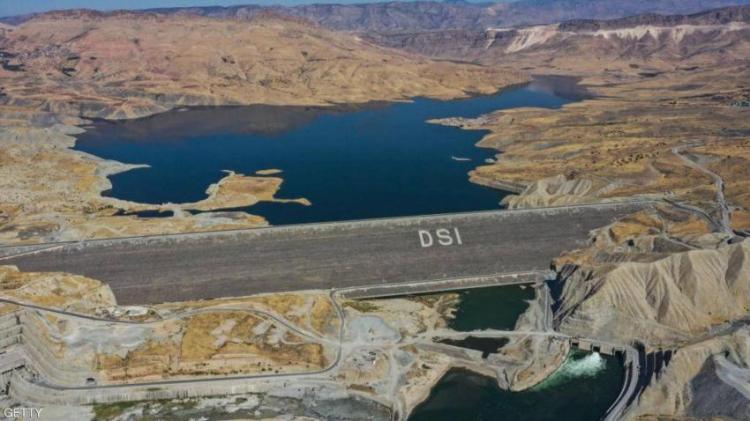Cairo – North-Press Agency
Muhammad Abu Zaid
On Sunday, a human rights report issued in the Egyptian capital Cairo warned of the catastrophic effects of the Turkish Ilisu dam on neighboring countries.
The report, issued by a member organization of the United Nations Human Rights Council, shed light on the economic, water, and cultural risks that neighboring countries will suffer as part of the negative effects and grave risks resulting from the building of the dam.
In addition to the negative effects of this dam on the cultural and archaeological heritage of the historical site of Hasankeyf, which dates back to 12,000 years and includes many Assyrian, Christian, and Islamic monuments that make the region a meeting place for many cultures, it will also affect the marshes of Iraq that are subject to drought, turning them into a desert when the flow of water to the marshes is cut off. This area is included in the UNESCO World Heritage List as it has biological diversity and a multicultural history, according to the report issued by the Maat Foundation for Peace, Development and Human Rights.
Serious damage
The report, of which North-Press obtained a full copy, pointed to severe damage to the environment in Iraq as a result of the dam’s construction, which is evident in the decrease in the amount of water flowing to the Tigris River, which has led to a crisis in regard to drinking water and agriculture inside Iraq. This is in addition to the increase in desertification, water pollution, and the impact on Iraqi industries due to low energy generated by power plants that depend on water, with the lack of conditions for the appropriate growth of fish, which results in economic damage as well.
Ignoring international agreements
The report highlighted Turkish disregard for international agreements and conventions that define the establishment of water projects, such as the Treaty of Lausanne, the Treaty of Friendship and Good Neighborliness, in addition to the 1997 United Nations regarding the use of international waterways for non-navigational purposes.
The report pointed out the massive negative effects on neighboring countries as a result of the dam, whether at the level of the population or at the agricultural or economic level, as well as at the level of the river environment, in addition to the low energy generated by power plants.
Head of the Maat Foundation Aymen Aqeel said that despite the existence of a set of legal controls, charters, and international agreements governing dam construction which mandate coordination and cooperation between downstream and upstream countries when constructing dams, Turkish authorities ignored all this when the dam was built and did not consult with countries in the Tigris and Euphrates basins such as Iraq and Syria.
Aqeel added that the Turkish Ilisu Dam has negative effects on these countries, including reducing water flow to the Tigris River by about 60%, (reducing its share from 20 billion cubic meters to nearly 9 billion), and that this shortage will deprive Iraq of one third of its arable land, specifically in the north, center, and south, transforming it from a productive country into a crop importer. The dam will lead to a deterioration of already depleted economic conditions and high unemployment, but the most dangerous possibility is a large wave of displacement in addition to significant reduction of livestock.
On May 11, Turkish President Recep Tayyip Erdogan announced that his country would start operating the first turbine in the Ilisu Dam in southeastern Turkey.
After a weekly cabinet meeting, Erdogan said, "We will start operating one of the six turbines of the Ilisu Dam, one of the largest irrigation and energy projects in our country."
The dam, which was approved by the Turkish government in 1997, caused the displacement of about 80,000 people from 199 villages and raised the government's concern in Iraq, which fears its impact on the water supply of the Tigris River, according to human rights organizations.
In August 2019, activists said that the Turkish authorities started to fill the controversial reservoir of the Ilisu Dam, which will flood the ancient city of Hasankeyf, which dates back to 12,000 years.
Satellite imagery taken between the 19th and 29th of July last year reveals that the water is rising and gathering behind the dam on the Tigris River.

